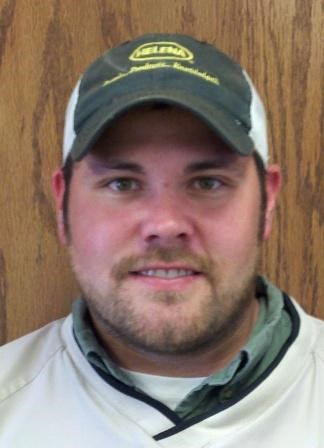Agronomy Articles
Key Factors to Success
By Matt Horstman, Agronomist, Dimock
Harvest is in full swing. In some areas yields are better than expected. In other areas that were a little short on rain fall, yields are average to a little below. No matter what, the yield monitor shows that fertility is just as important as always. With higher price fertilizer soil sampling might be as important as ever. Putting fertilizer where you need it is going to be the key. We offer a variable rate fertilizer program called CMT. It offers grid soil sampling and then analysis of that 2.5- or 5-acre grid and allows us to apply fertilizer to each grid according to soil sample results and yield goals. Along with our CMT program we also address soil PH which is very critical to fertilizer uptake. If your soil PH is too far one way or the other it can lock up nutrients and make them unavailable to the plant, so getting that in line is a key factor to success. Contact your agronomist to learn more about the features and benefits of our CMT program. Have a safe and bountiful harvest season.
10/3/2025
More Than Just Corn and Soybeans
By Damien Fuerst, Agronomist, Scotland
As harvest has started for some, and for others it will start in a week or two, we need to think about more than corn and soybeans. For those that have alfalfa it is a good time to go over fertilizer needs for that with your local agronomist. It is also a good time to get all pasture spraying needs lined up. Spraying pastures in the fall is a good way to get ahead of these tough to kill perennial and biennial weeds. We have access to drones, airplanes or helicopters to spray pastures.
As you are harvesting don’t be afraid to call your agronomist about what hybrids worked or didn’t work so we can help select the correct hybrid for each field. Also, it’s a good time to think about taking soil samples, whether they are CMT grid samples or a composite sample. Grid sampling is a good way to place the fertilizer where it needs to go and potentially lowering fertilizer cost.
Hope you all have a great and safe harvest!
9/26/2025
Weed Control
By Clay Hespe, Agronomist, Tyndall
As we get closer to harvest, we can look back at the challenges that we had over the growing season. Weed control seems to be getting tougher each year. The best management practice is to layer residual herbicides with multiple modes of action as much as possible. For those troublesome fields or if we continue to be in a wet cycle, one of the applications to help with a start clean and stay clean field next spring may be a fall application of Valor herbicide. A 2-4oz rate of Valor will allow you to plant corn or soybeans in the spring at a reasonable cost. The best timing would be when soil temperatures get below 50 degrees but with everyone’s workload and the weather I would suggest towards the end of October. Waiting for the perfect timing might not allow us to get across all the acres. If you have any persistent thistle or marestail, glyphosate, 2,4-D or dicamba may be tank mixed as well. Talk to your local agronomist on how this may have a benefit for you. Have a safe harvest.
9/19/2025


Agronomy Staff
 Jeff Schmiesing
Agronomy Dept. Manager
Cell: 605-940-7665
|
 Allen Johansen
Agronomy Dept.
Purchasing Manager
Cell: 605-661-4882
|
|
 |
 |
 |
 |
 |
 |

|

|
 |
 |
 |







